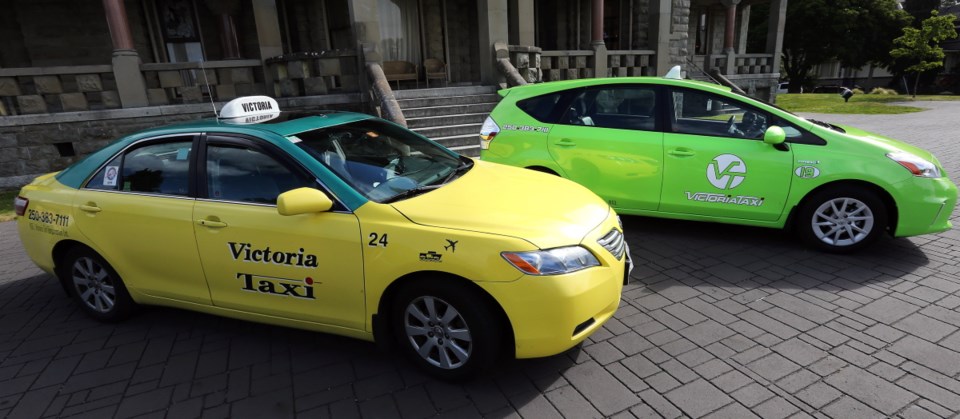Victoria taxi drivers say they fear for their livelihood and passenger safety if app-based ride-sharing company Uber comes to the region, which is why they are backing a proposed law that would increase fines for drivers operating without a province-issued taxi licence.
Uber, created by a San Francisco-based tech-giant, allows customers to use a smartphone app to connect with both professional and non-professional drivers who ferry around passengers for a cheaper fare than a standard taxi. Payment is made directly through the app using a credit card. Drivers pay a 20 per cent commission to the company.
The company is trying to regain a foothold in Vancouver, despite being banned by regulators in 2012 for failing to meet the minimum fee of $75 for limousine service.
Opposition leader John Horgan said he will introduce legislation on Monday to raise the maximum fine for someone operating without a permit from $5,000 to $20,000 under the Passenger Transportation Act.
The Greater Victoria Taxi Association is in favour of that, with representatives from each of the region’s three major taxi company standing by Horgan as he spoke outside the legislature Thursday.
“We have too many cabs here — we don’t need them here,” said Kuldeep Singh, a cab driver for the last 30 years who represents Yellow Cab for the Greater Victoria Taxi Association. “If they come, they will take our bread and butter away.”
Uriel Levy, representing Blue Bird Cabs, said if Uber expands throughout the province, he wants to see tough enforcement measures where drivers operating without a cab licence are fined.
Some cities like Ottawa have employed undercover bylaw officers to catch unlicensed cab drivers.
“Everything about Uber is inconsistent with the regulations that we’re trying to put in place to protect the travelling public,” Horgan said.
He said traditional taxi drivers aren’t afraid of competition. “What they’re afraid of is being undercut by companies that aren’t living by the same rules that they are."
The taxi industry in B.C. is highly regulated. Cab drivers must hold a class 4 licence, provide a driver’s abstract and pass a criminal-record check to obtain a permit. Their car must undergo safety inspections every six months and many cabs are also equipped with cameras.
Transportation Minister Todd Stone said Thursday he welcomes Uber to B.C. as long as its drivers obtain the same licences as taxi drivers. Stone said he’s not aware of any Uber drivers who have applied for taxi licences.
If an unlicensed driver is in a car accident while transporting a passenger, the driver would not be covered by ICBC.
“You travel in these vehicles as a passenger at your own risk and you drive these vehicles at significant risk,” Stone said.
The Disability Alliance of B.C. and the Council of Senior Citizens’ Organizations of B.C. have written letters in support of the proposed legislation.
The company operates in more than 200 cities worldwide and is expanding into Canada, much to the chagrin of cab drivers across the country. Uber Technologies Inc. is valued at $17 billion, according to Bloomberg.
In Australia this year, one state issued $60,000 in fines to 30 unlicensed drivers for not complying with taxi regulations.
Uber, which bills itself as a technology company and not a cab company, did not directly respond to several questions about requirements for drivers.



